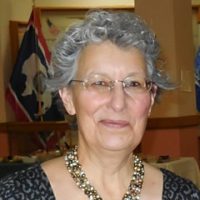The Peace Corps sent me to Cayambe in the Sierra of Ecuador, a town between Quito and Otavalo. I was to work with teenage girls and women to improve their health and nutrition.
My Ecuadorean counterpart Marina and I worked for Ecuador’s Department of Agriculture in outlying villages. The farmers lived with their families in mud huts with dirt floors, typically without electricity or running water, and guinea pigs (a highlands delicacy) scurrying around inside. Instead of money, farmers received a small plot of land on the hacienda (farm) to grow their own food. They spent the bulk of their time growing onions and potatoes in poor, rocky soil at 10,500-foot elevation. These were mestizos, people with a mixed background of Spanish and Indian, not accepted by either group.
I was terribly naïve about social prejudices and abject poverty. It required the greater part of my two years to figure out how best to work within this setting. Marina, who was about my age, came from a middle-class family with nine children. The older ones had completed high school and the oldest boys were working their way through college.
Ecuador’s Department of Agriculture expected Marina, who had only a high school degree, to absorb whatever knowledge she could from me. In the mid-1970s it was unusual for a woman in this male-dominated culture to work in community development. I was “adopted” by Marina’s family, and we often had long discussions about the harsh living conditions of the peasants. We brainstormed ways to make a difference within a culture that had a wide gulf between rich and poor, and meager resources. The family suggested that I read Huasipungo by Jorge Icaza, a novel considered by many to be on the same level as John Steinbeck’s Grapes of Wrath. I read Icaza and other authors to deepen my understanding of these people, their culture and living conditions.
One of the most valuable lessons I learned during my Peace Corps years was that people who endure the worst life brings them will try to take time away from their day-to-day struggles to enjoy a little merrymaking. Parades, parties, religious processions, celebrations, and performances in homes with family and friends offered occasions for music. Instruments included guitars, panpipes, flutes and drums. The sounds varied with the people playing, whether they were indigenous, low-income, upper society, youth, elderly, or from different parts of the country.
The men in my “adopted” family were the primary musicians, playing mostly guitars, but they knew a lot of the Ecuadorean songs and music. Traditional music included pasillos which told of hardships and lost love.
A close Ecuadorean friend gave me two rare tin flutes and told me a story which partially explains why I never heard or saw these instruments being played.
Traditionally, both flutes were played simultaneously in the mouth of one musician who fingered holes separately with each hand. Sometimes other instruments would accompany the flutes playing melancholy songs about heartaches, unbearable living conditions, and harsh treatment of campesinos (peasants). Occasionally, while music was playing, people said they were “provoked” into drinking aguardiente (firewater) — a drink typical in the Sierras with 40 to 60 percent alcohol content.
I asked why the flutes were never played in public and heard an explanation that I cannot verify. I was told more than thirty years earlier—in the 1940s—flutes were banished by the government because the sad music had prompted too many suicides. It seems more likely that, over many generations, the difficult skill of playing two flutes simultaneously stopped being passed down—except to a very tiny number of musicians.
I’m content to let the mystery of Ecuador’s rare tin flutes remain unsolved. They remind me that some people may fall into despair, but others enjoy music as a small respite from their day-to-day struggles.




